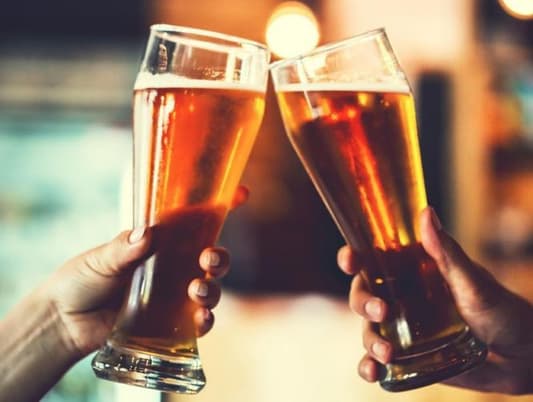We've probably all communicated in a different language after 10 pints on Friday night but that was mostly gibberish that lip readers couldn't even translate.
However, a new study has found that after a couple of drinks, you might find that you are better at learning foreign languages.
Oui, oui!
Researchers from University of Liverpool, King's College London and the Netherlands' Maastricht University found that drunker individuals can pronounce foreign words better than sober folks.
Participants were 50 native speaking Germans who were studying at the Dutch school.
They could also reportedly read and speak Dutch already but had only learnt since being at the school.
They were all given beverages that were either non-alcoholic or contained only small traces of alcohol, which varied between people depending on their body weight.
After consuming the drink, they were then asked to speak Dutch for a few minutes with one of the experimenters.
The conversations were then assessed by two native speaking Dutch people, who had no idea if the person involved had drunk alcohol or not.
Low and behold, those that had sampled some dutch courage (pardon the pun) were deemed to have a better grasp of the language than those that didn't.
One of the co-authors of the study Dr Inge Kersbergn is quoted by the Daily Mail as saying:
"Our study shows that acute alcohol consumption may have beneficial effects on the pronunciation of a foreign language in people who recently learned that language.
This provides some support for the lay belief (among bilingual speakers) that a low dose of alcohol can improve their ability to speak a second language."
Before you go out tonight to slam a few tequlias and try to speak Italian it's probably best to remember that those involved in study only had a low percentage of booze.
Anything higher than that probably wouldn't be beneficial to anyone wishing to speak eloquently, let alone a foreign language.
Dr Jessica Werthmann of Maastricht University adds:
"We need to be cautious about the implications of these results until we know more about what causes the observed results.
One possible mechanism could be the anxiety-reducing effect of alcohol.
But more research is needed to test this."






TWEET YOUR COMMENT